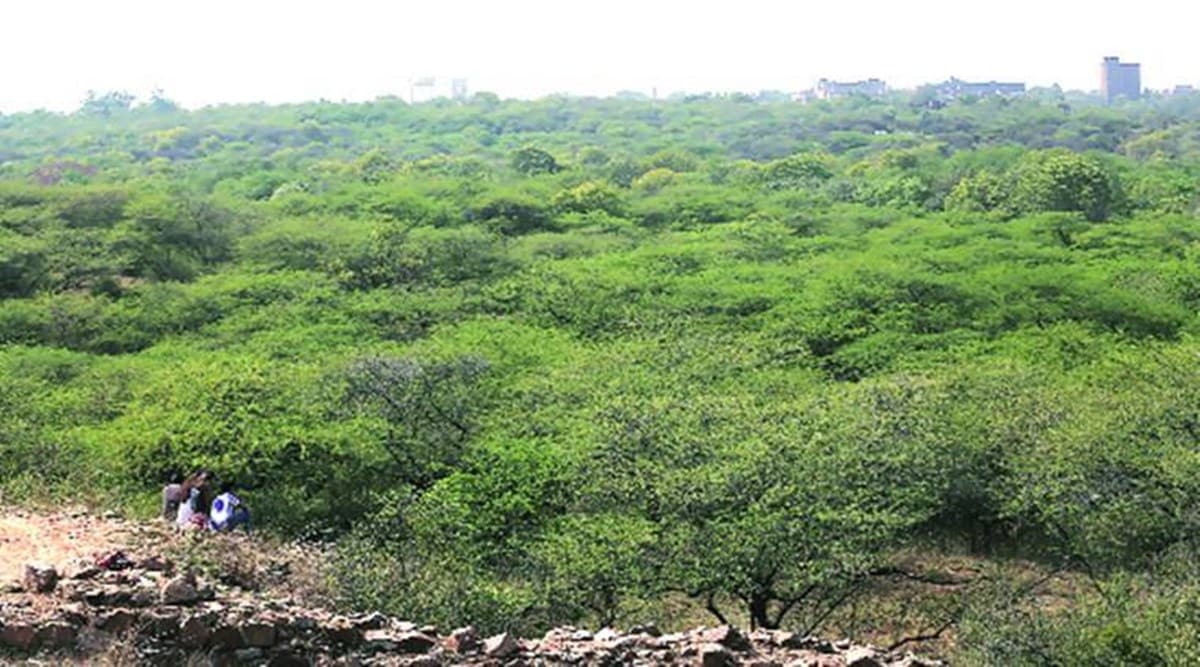‘Targeted to destroy remaining ecosystems’: NGO opposes Forest Conservation Amendment Bill
In the last week of March, the Forest Conservation Amendment Bill (FCAB) was introduced in the Lok Sabha with the aim to amend the Forest Conservation Act of 1980.
 The NGO appealed that the Joint Committee of Parliament must consider conducting an in-person hearing in Bengaluru to cater to the southern states, to clarify the concerns raised by citizens on forest cover loss due to the proposed FCA amendment bill of 2023. (Representational/ File)
The NGO appealed that the Joint Committee of Parliament must consider conducting an in-person hearing in Bengaluru to cater to the southern states, to clarify the concerns raised by citizens on forest cover loss due to the proposed FCA amendment bill of 2023. (Representational/ File) In their detailed objections sent to the Union Government on May 16, United Conservation Movement, an NGO claimed that provisions of the Forest (Conservation) Amendment Bill 2023 are largely focused to support land grabbing, encroachment, and conversion of large tracts of forest lands, hillocks, plantations and resettled tribal lands for highly polluting industrial purposes, and commercial activities that are not suited for such landscapes, including the catchment areas of rivers originating in the Western Ghats.
In the last week of March, the Forest Conservation Amendment Bill (FCAB) was introduced in the Lok Sabha with the aim to amend the Forest Conservation Act of 1980. Apart from providing guidelines for seeking approval from the central government to divert forest lands for non-forestry purposes, the bill exempts certain categories of lands from the purview of the Act to fast-track projects of national importance.
The last day to file objections against the proposed amendments is May 18.
“The clauses and amendments do not reflect conserving the vast biodiversity and natural ecosystems that are currently enjoying the protection of Forest Conservation Act 1980. The proposed amendments are directly targeted to destroy remaining ecosystems that are providing critical ecological services, and violate the doctrine of public trust. In order for India to achieve the Intended Nationally Determined Contributions (INDC) targets by 2030, the FCAB 2023 needs to consider the status of above types of land and inclusions under the provision of FCA amendment for the ecological security of our country and to conserve biodiversity for future generation,” the NGO said.
The bill has been referred to the Joint Committee of Parliament for examination.
The NGO appealed that the Joint Committee of Parliament must consider conducting an in-person hearing in Bengaluru to cater to the southern states, to clarify the concerns raised by citizens on forest cover loss due to the proposed FCA amendment bill of 2023.
“Critical animal corridors outside the forest lands are status quo unprotected. These critical mass of vegetated lands will get further compromised, escalating the potential of man-animal conflict in already tensed landscapes. Forest Conservation Act 1980 and Wildlife Protection Act 1972 need to be strengthened to legally protect critical animal corridors that connect Protected Areas. The increasing human-animal conflicts can largely be averted with legal protection of elephant corridors as mentioned in ‘Right of Passage: Elephant corridors of India’,” it said.
Further, the bill exempts certain types of forest lands from the requirement of forest clearance (permission under Section 2 of the Act). These include forest lands situated within 100 km along the international borders, Line of Control, or Line of Actual Control, proposed to be used for the construction of strategic linear projects of national importance, forests alongside a rail or a road maintained by the government and land proposed to be used for constructing defence related project or a camp for paramilitary forces, or public utility projects as specified by the central government, the extent of which should not exceed five hectares in left-wing extremism affected area.
“Without any regulation, loss of vegetation in these lands will result in the release of several Gigatons of Carbon Dioxide into the atmosphere and will significantly compromise the impact of India’s INDC targets,” the NGO opined







